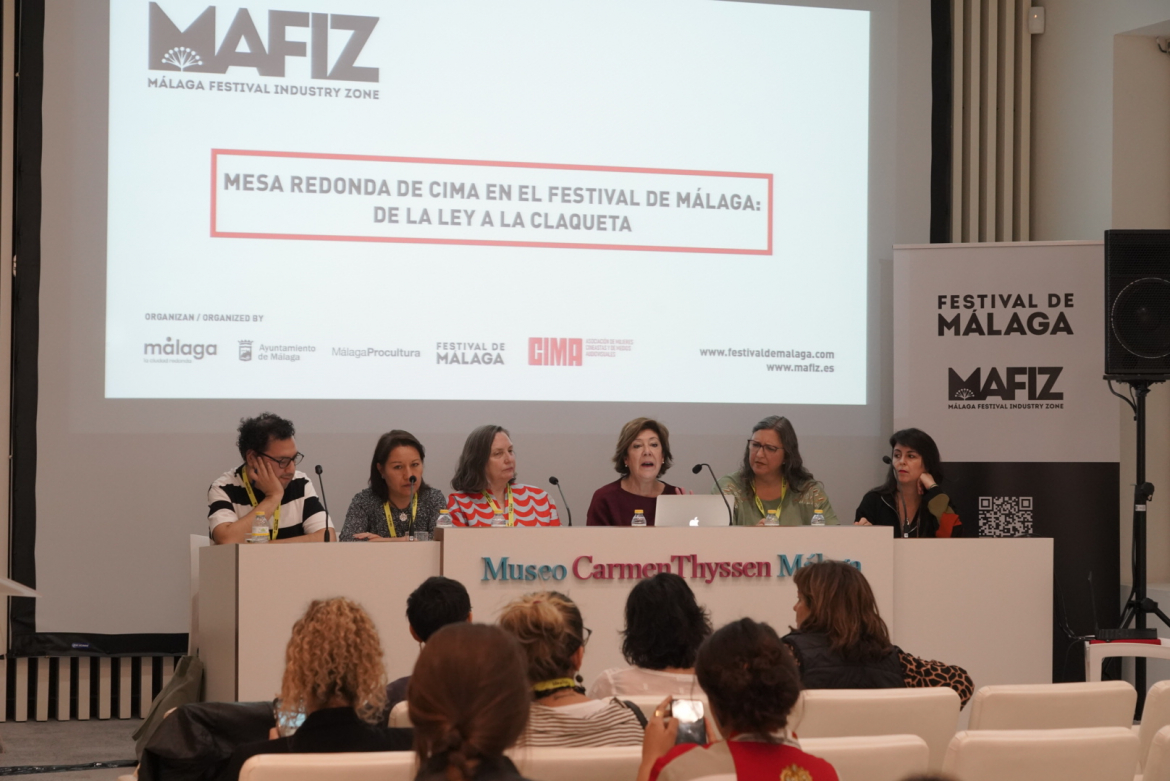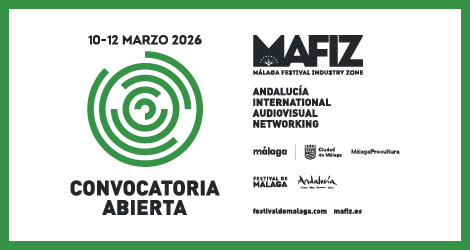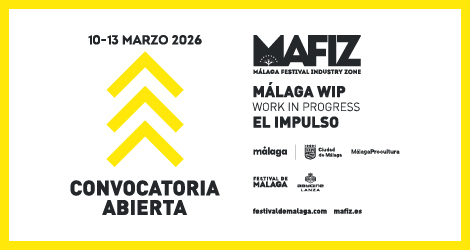
The cases of CIMA Women Filmmakers: cinema laws for equality
In the framework of parallel activities in Mafiz, the Malaga Film Festival’s industry zone, the auditorium of the Thyssen Museum was the venue chosen to discuss the policies that are being implemented
In the framework of parallel activities in Mafiz, the Malaga Film Festival’s industry zone, the auditorium of the Thyssen Museum was the venue chosen to discuss the policies that are being implemented in different Ibero-American countries and Spanish Autonomous Communities to encourage the incorporation of women as Directors, executives and in decision-making positions of cinematographic productions.
Erika Chávez Humana, Director of the General Directorate for Audiovisual Productions, Photography and New Media of Peru; Cecilia Díez, Executive Director of the Agency for International Promotion of the Audiovisual Industry of INCAA in Argentina; Christian Michel Salazar, coordinator for legal affairs and Projects of the Conference of Audiovisual and Cinematographic Authorities of Ibero-America; Glorimar Marrero, director, scriptwriter and producer of La Pecera, film that won the prize for Best Script at the Festival of Ibero-American Films of Havana, in Cuba, and Cristina Andreu, President of CIMA, were the protagonists of the discussion, which was moderated by Inés Romero.
The act was opened by Christian Michel Salazar, who stated that in Ibero-America it is very difficult to generalise because “when we speak of Latin America we speak of heterogeneity, in the sense that the importance of public action in each country is going to differ depending on the development of its audiovisual industry”.
Cristina Andreu, President of CIMA Women Filmmakers, pointed out that “for CIMA, changing the laws is essential, but we want the change to be real”, insisting that what they want is “that women in the audiovisual sector have the same rights”.
Erika Chávez, in turn, highlighted the initiative Warmi Lab, one of the activities carried out in the the Latin American Focus section of Mafiz, thanks to which four young Peruvian female directors are able to present their projects to the international industry.
Cecilia Díez commented that in Argentina there is an additional 10% subsidy for projects that incorporate gender equality. She said that the role of women in the audiovisual sector has been growing, but not at as the head of teams”. For this reason, different measures are being considered in order to improve the situation, and that at present “it is a question of action”.
Glorimar Marrero referred to the case of Puerto Rico, where the Law of Cinema was repealed five years ago. However, a Law of Incentives had been passed to support audiovisual projects of Puerto Rican origin. She said that she thought that “what was going on in Spain with laws that help women boost their audiovisual careers was very encouraging”.
The act served to highlight how public policies can help promote gender equality and to reflect on the path to be followed in order to attain that objective.










